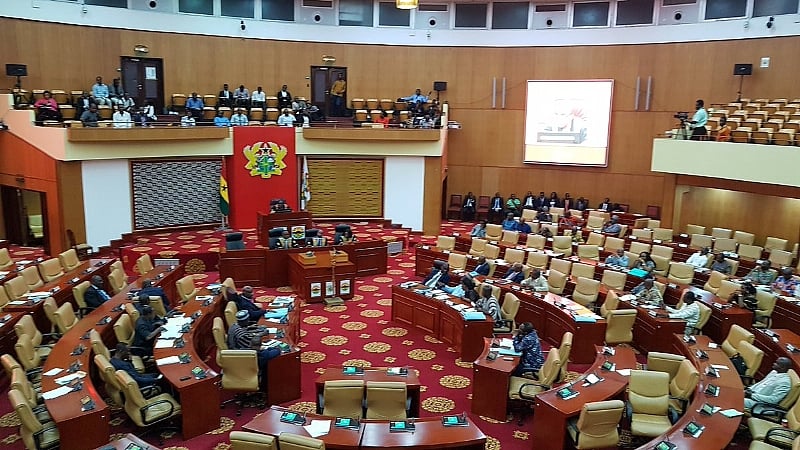The incident in Parliament, where a member of the Minority party verbally attacked a Majority MP by calling her the “daughter of a murderer,” represents a stark illustration of the decline in decorum and respectful discourse within the legislative body. The unwarranted attack, delivered with aggressive repetition, not only targeted the MP personally but also attempted to tarnish her family’s reputation. The accuser’s insistence on the veracity of the claim, despite lacking any substantiating evidence, further amplified the severity of the transgression. This incident raises critical concerns about the conduct of parliamentarians and the potential erosion of public trust in the institution.
The outburst occurred while the Minority Leader, Alexander Afenyo Markin, was addressing Parliament. His immediate reaction, visibly disapproving of the disruptive comment from his own side, signaled an attempt to restore order and maintain a semblance of professionalism within the chamber. However, the damage had already been done. The blatant disrespect displayed by the unidentified MP undermined the authority of the Speaker and the dignity of the entire parliamentary process. It also underscored the growing polarization and animosity that frequently characterize political interactions in Ghana.
The incident sparked widespread condemnation on social media, with many Ghanaians expressing their disappointment and concern about the deteriorating standards of conduct within Parliament. The public outcry reflects a broader unease with the increasing tendency towards personal attacks and unsubstantiated accusations in political discourse. This incident serves as a stark reminder of the need for stricter enforcement of parliamentary rules of conduct and a renewed commitment to respectful engagement among legislators. The behavior exhibited by the offending MP not only disrespects his fellow parliamentarians but also disregards the public’s expectation of decorum and professionalism from their elected representatives.
Analyzing the incident reveals deeper issues plaguing the Ghanaian political landscape. The tendency to resort to personal attacks and inflammatory rhetoric often stems from a lack of substantive arguments and a desire to discredit opponents through character assassination rather than engaging in reasoned debate. This practice not only undermines the integrity of political discourse but also creates a toxic environment that discourages constructive dialogue and consensus-building. The focus shifts from addressing critical national issues to scoring political points through personal attacks, obstructing progress and hindering effective governance.
The incident also raises questions about the role of party leadership in maintaining discipline and promoting ethical conduct among its members. While the Minority Leader’s attempt to quell the disruption was commendable, it also highlights the challenges faced by party leaders in controlling the actions of individual members. A stronger emphasis on party discipline, coupled with clear consequences for breaches of conduct, is crucial to deterring such behavior and upholding the integrity of Parliament. The incident underscores the urgent need for internal party mechanisms to address and rectify the behavior of errant members. This could involve internal disciplinary procedures, mandatory sensitivity training, and a clear code of conduct enforced by the party’s leadership.
Moving forward, several key steps are necessary to address the broader issue of declining decorum in Parliament. Strengthening parliamentary rules and procedures to explicitly address and penalize disrespectful behavior is paramount. This could include imposing fines, suspensions, or even expulsion for egregious violations. Equally important is fostering a culture of respect and accountability among parliamentarians. Promoting dialogue and encouraging members to engage in constructive debate rather than resorting to personal attacks are essential steps towards restoring public trust in the institution. Ultimately, the responsibility lies with both individual parliamentarians and their party leadership to ensure that Parliament functions as a forum for reasoned debate and effective governance, rather than a platform for personal attacks and disruptive behavior. The incident should serve as a wake-up call for a thorough introspection and a commitment to restoring the dignity and effectiveness of Parliament. It is crucial for Ghana’s democratic future that Parliament remains a symbol of reasoned debate and responsible governance.














